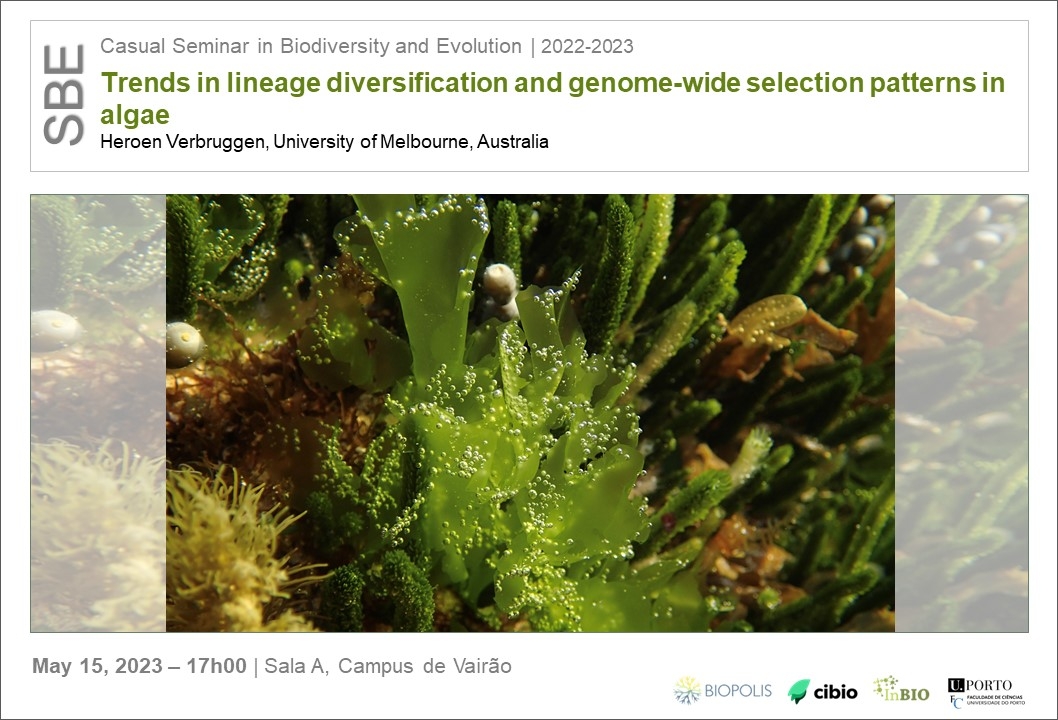Trends in lineage diversification and genome-wide selection patterns in algae
15 May 2023 - Heroen Verbruggen, University of Melbourne, Australia | 17h00 | Sala A, Campus de Vairão

CASUAL SEMINAR IN BIODIVERSITY AND EVOLUTION
My seminar will summarise the main findings of two recent studies on the evolutionary biology of major algal groups. In order to understand diversification trends in the eukaryotic supergroup Archaeplastida, we inferred a phylogeny using >460 chloroplast genomes that was calibrated in geological time using 19 fossil occurrences. We used the time-calibrated phylogeny to investigate patterns of diversification through time and across lineages, showing an increase of lineage accumulation during the Paleozoic, with stark differences between the contributions of different functional form-groups to overall diversification. A second study focuses on genome-wide trends in molecular evolution. Starting from the near-neutral theory of molecular evolution, we define a set of hypotheses describing our expectations of the relationship between genome-wide molecular evolutionary dynamics, morphological complexity and life cycle types. Using an unprecedented set of brown algal nuclear genomes, we infer a very strongly supported phylogeny and test our hypotheses on molecular evolution. We demonstrate clear differences in observed drift across life cycle types and levels of morphological complexity, largely in line with the theoretical observations. We show that the dN/dS ratio provides an incomplete picture of the underlying evolutionary dynamics.
Heroen Verbruggen is an Associate Professor at the University of Melbourne. His team works on evolutionary and ecological genomics of algae and complex autotrophic holobionts, aiming to understand how these organisms function, interact with each other and their environment, and have evolved. A broad interest in algal biology leads his team to do a range of work including biodiversity, genome biology, photophysiology and evolutionary biology. The team's coral holobiont work integrates chemical imaging, meta-omics techniques, metabolic modelling and experimental manipulations to better understand energy acquisition and metabolic exchanges among holobiont members. Bioinformatics and genomics are key skills in his team, and the group has developed several publicly available computational tools for environmental microbiology, phylogenetics and genomics.
[Host: Pedro Beja, Applied Ecology - APPLECOL, 21st Century Conservation Lab - LACOS21]